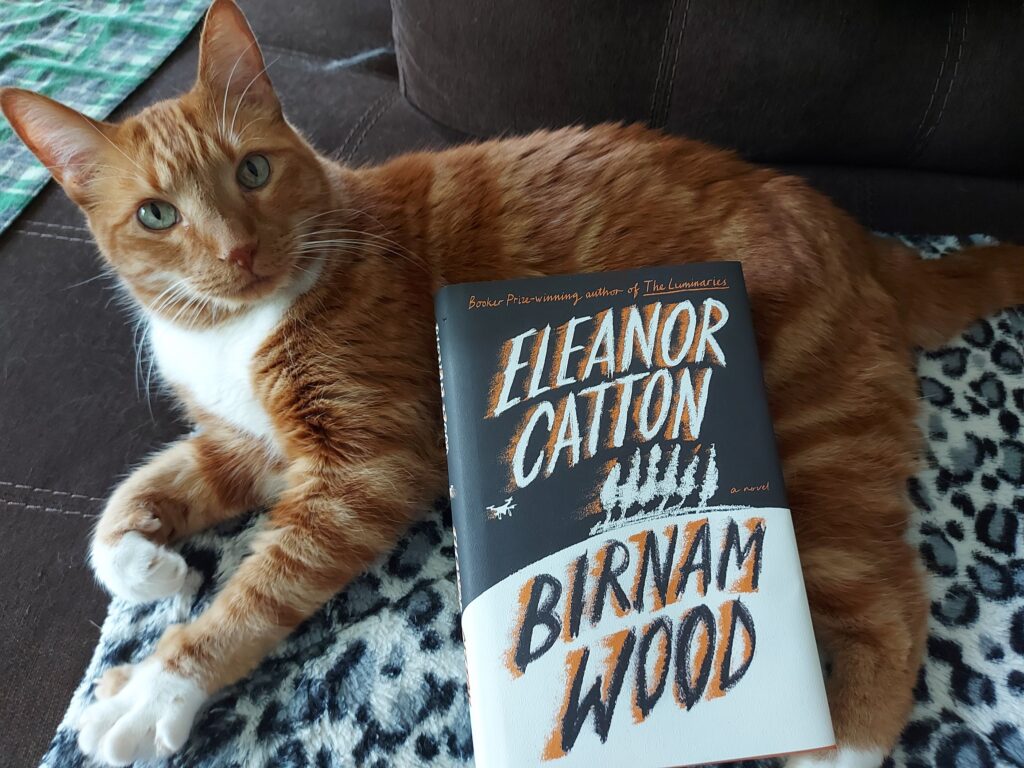Birnam Wood by Eleanor Catton

I have read Eleanor Catton’s two other novels, The Rehearsal, which I did not like, and The Luminaries, which I found interesting enough to keep in case I want to read it again. Birnam Wood, published ten years after The Luminaries, is already being named one of the best releases of this year. This was enough to pique my interest, but the plot, a psychological eco-thriller set in New Zealand involving a gardening collective and a billionaire, was what compelled me to read it in the end. I cannot say that I liked reading Birnam Wood (named after the Birnam Wood referenced in Shakespeare’s MacBeth, which I will not even try to parse because I do not enjoy reading Shakespeare), but I do find it to be a fascinating novel. When I finished reading the novel’s shocking ending, my first reaction was WTF and then my second reaction was I wish I had someone to discuss this novel with.
Birnam Wood is about a gardening collective called Birnam Wood made up of a group of philanthropic individuals who plant crops on donated plots of land. Birnam Wood was founded and is led by Mira, who also trespasses and plants crops on private land, but she keeps this from most of the other members of the collective. Her best friend and roommate, Shelley, is also part of Birnam Wood and handles all the administrative tasks that Mira cannot be bothered with.
When a landslide closes a pass in the Korowai National Park and cuts off the town Thorndike, which leads to the town being mostly abandoned, including a large farm owned by the Darvishes, Mira gets the idea to drive down to Thorndike to check out the abandoned farm and do some guerilla gardening. While scoping out the farm, Mira meets American billionaire Robert Lemoine, who is in the process of purchasing the farm from the Darvishes so he can build a doomsday bunker. Intrigued by Mira and Birnam Wood, Lemoine offers to fund Birnam Wood and let them use the Darvishes’ farm without their knowledge.
Birnam Wood has a character driven plot. Long passages are dedicated to the character’s internal monologues and the events of the novel happen because of the characters’ thoughts, feelings, (incorrect) assumptions and miscommunications. The characters are representative of how human beings are incapable of being truly altruistic. A remark is made about all billionaires being psychopaths. Lemoine is not an underdeveloped character nor is he a caricature, but he is exactly what people think he is: a psychopath. He is building a bunker on the Darvish property, but it, and his involvement with Birnam Wood, are just a front for what he is really doing in New Zealand: secretly mining the national park for rare-earth minerals so that he can become even more rich. And Lemoine will do absolutely anything to make sure nobody gets in his way. Mira derives more pleasure from committing the crime of trespassing than from philanthropy, and she turns out to be a sellout by getting Birnam Wood involved with Lemoine, who she finds herself attracted to. Shelley is bored with Birnam Wood and wants out, but the only way she can think to do so is by betraying her best friend. She also, surprising, turns out to be more morally corrupt than Mira. Owen Darvish has been knighted for services to conservation, but even his own wife remarks that he works in pest control and does not care about the environment. And perhaps the most incorruptible of the characters, Tony, who used to be part of Birnam Wood and who has a thing for Mira, turns out to be as selfish as everyone else. While investigating Lemoine’s presence in Thorndike, he stumbles across Lemoine’s secret and very illegal rare-earth mining operation. He is eager to expose Lemoine, but not so much because he cares about the environment, but because his exposé will make him famous.
How High We Go in the Dark gave me hope that humanity, when push comes to shove, can band together to save ourselves and the planet, but Birnam Wood has left me feeling nihilistic all over again. Birnam Wood shows that we rely too much on our creature comforts, including those that are made with rare-earth metals, to do anything to stop the world from burning.